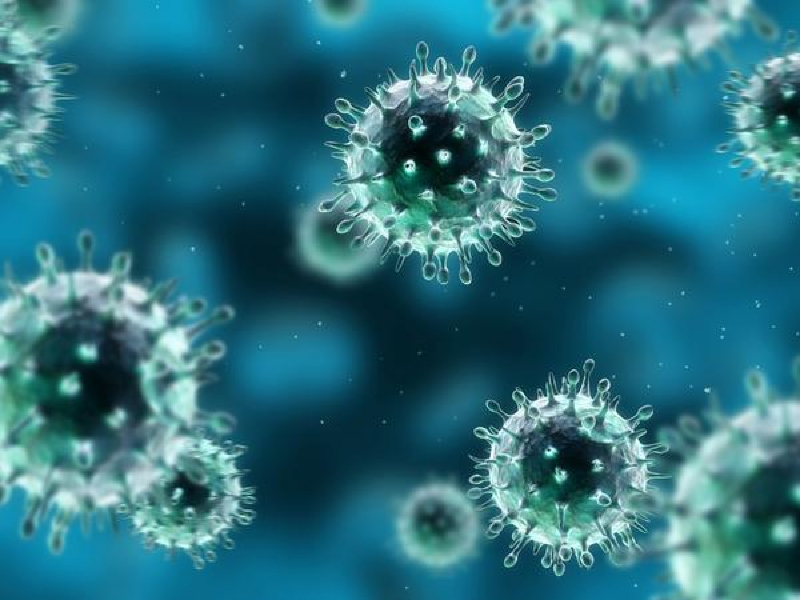
In
part 1 of this series, we explained to you what an adenovirus is and the symptoms they can cause. In part 2 of this series, we will look at what can be done to prevent or treat adenovirus infection.
Adenovirus is highly contagious, so multiple cases are unfortunately common in close-contact settings like childcare centers, schools, hospitals, and summer camps.
The types of adenovirus that cause respiratory and intestinal infections can spread from person to person through respiratory secretions (coughs or sneezes) or fecal contamination. Fecal material can spread via contaminated water, eating food contaminated by houseflies, and poor hand washing (such as after using the bathroom, before eating or preparing food, or after handling dirty diapers).
A child might also pick up the virus by holding hands or sharing a toy with an infected person. Adenovirus can survive on surfaces for fairly long periods, so indirect transmission can occur through exposure to the contaminated surfaces of furniture and other objects.
The types of adenovirus that cause pinkeye may be transmitted by water (in lakes and swimming pools), by sharing contaminated objects (such as towels or toys), or by touch.
Once a child is exposed to adenovirus, symptoms usually develop from 2 days to 2 weeks later.
Adenoviral illnesses often resemble certain bacterial infections, which can be treated with antibiotics. But antibiotics don’t work against viruses. To diagnose the true cause of the symptoms so that proper treatment can be prescribed, MacKoul may want to test respiratory or conjunctival secretions, a stool specimen, or a blood or urine sample.
MacKoul will help you decide on a course of action based on your child’s condition. Adenoviral infections usually don’t require hospitalization. However, babies and young children may not be able to drink enough fluids to replace what they lose during vomiting or diarrhea and so might need to be hospitalized to treat or prevent dehydration. Also, young (especially premature) infants with pneumonia sometimes need to be hospitalized.
In most cases, a child’s body, with the help of the immune system, will get rid of the virus over time. Antibiotics cannot treat a viral infection, so it’s best to just make your child more comfortable. Make sure your child gets extra rest and drinks plenty of fluids. If they are uncomfortable, you can consider giving him acetaminophen to reduce his fever or ease the pain of a sore throat, but remember that fever is one way your child’s body fights these viruses.
If your child has a respiratory infection or fever, getting plenty of rest and taking in extra fluids are essential. A cool-mist humidifier (vaporizer) may help loosen congestion and make your child more comfortable. Be sure to clean and dry the humidifier thoroughly each day to prevent bacterial or mold contamination. If your child is under 6 months old, you may need to clear their nose with nasal saline drops and a bulb syringe.
Don’t give any over-the-counter (OTC) cold remedies or cough medicines without checking with your doctor at MacKoul. You can use acetaminophen to treat a fever (your doctor will tell you the proper dose); however, do not give aspirin because of the risk of Reye syndrome, a life-threatening illness.
If your child has diarrhea or is vomiting, increase fluid intake and check with your pediatrician about giving an oral rehydration solution to prevent dehydration.
To relieve the symptoms of pinkeye, use warm compresses and, if your doctor recommends them, a topical eye ointment or drops.
Most adenoviral infections last from a few days to a week. However:
- severe respiratory infections may last longer and cause lingering symptoms, such as a cough
- pneumonia can last anywhere from 2-4 weeks
- pinkeye can persist for another several days to a week
- more severe keratoconjunctivitis can last for several weeks
- adenovirus can cause diarrhea that lasts up to 2 weeks (longer than other viral diarrhea episodes, and something to be concerned about)
There’s no way to 100% completely prevent adenoviral infections in kids. To reduce their spread, however, parents and other caregivers should encourage frequent hand washing to help reduce the chances of spreading adenovirus infections. Toys and other objects handled by children should be kept clean and disinfected. Your child should swim only in swimming pools that have been adequately chlorinated. Keep shared surfaces such as countertops and doorknobs clean, and remove kids with infections from group settings until symptoms pass.
Most of these adenoviral conditions and their symptoms can also associated with other causes, so it’s always a good idea to have a pediatrician from MacKoul take a look. You should call your doctor if:
- a fever continues more than a few days
- symptoms seem to get worse after a week
- your child has breathing problems
- your child is under 3 months old
- any swelling and redness around the eye becomes more severe or painful
- your child shows signs of dehydration, such as appearing tired or lacking energy, producing less urine or tears, or having a dry mouth or sunken eyes
Remember, you know your child best! If he or she appears to be severely ill, don’t hesitate to call MacKoul Pediatrics right away at 239-573-2001.
MacKoul Pediatrics is an amazing local pediatrics office in Cape Coral, FL where caring, compassionate doctors and nurses work with you to keep your children as healthy as possible. MacKoul cares for children from birth to college age, from Cape Coral, Fort Myers, Naples, and beyond.
May 9, 2015

![[IMAGE]](http://static.mackoulpediatrics.com/images/858_ncqa_logo_centered.png)
 In
In 